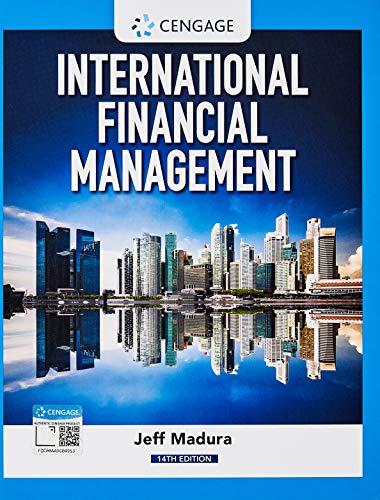1. Using a spreadsheet, compare the hedging alternatives for the Thai baht with a scenario under which...
Question:
1. Using a spreadsheet, compare the hedging alternatives for the Thai baht with a scenario under which Blades remains unhedged. Do you think Blades should hedge or remain unhedged? If Blades should hedge, which hedge is most appropriate?
2. Using a spreadsheet, compare the hedging alternatives for the British pound receivables with a scenario under which Blades remains unhedged. Do you think Blades should hedge or remain unhedged? Which hedge is the most appropriate for Blades?
3. In general, do you think it is easier for Blades to hedge its inflows or its outflows denominated in foreign currencies? Why?
4. Would any of the hedges you compared in question 2 for the British pounds to be received in 90 days require Blades to overhedge? Given Blades’ exporting arrangements, do you think it is subject to overhedging with a money market hedge?
5. Could Blades modify the timing of the Thai imports to reduce its transaction exposure? What is the tradeoff of such a modification?
6. Could Blades modify its payment practices for the Thai imports in order to reduce its transaction exposure? What is the tradeoff of such a modification?
7. Given Blades’ exporting agreements, are there any long-term hedging techniques from which Blades could benefit? For this question only, assume that Blades incurs all of its costs in the United States.
Step by Step Answer:






